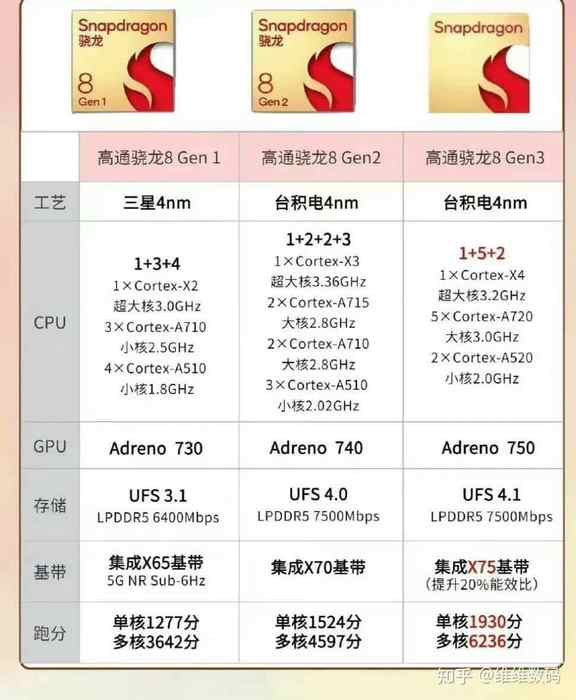Account Login
- Home
- Mobiles
-
- News
-
All news
Latest news

Sep 22, 2025 /
Xiaomi 17 Series Launch with Snapdragon 8 Elite Gen 5

Sep 22, 2025 /
Oppo ColorOS 16: Android 16 Update Launching October 15

Sep 22, 2025 /
Meta Smart Glasses: Ray-Ban Display and More Unveiled

Sep 12, 2025 /
iOS 26 Release Date and New Features Overview
-
- Reviews
-
All reviews
Latest reviews

Jun 14, 2024 /
FreeYond M5A : A New Name in Budget Mobile

Apr 23, 2023 /
Xiaomi Pad 6 vs Xiaomi Pad 6 Pro Comparison
-
- Other
- Contact Us
Top 10 Smartphones
| Device | Total hits | ||
|---|---|---|---|
| 1 |
| 26731 | 2 |
| 23940 | 3 |
| 22100 | 4 |
| 20715 | 5 |
| 20624 | 6 |
| 19796 | 7 |
| 19680 | 8 |
| 19188 | 9 |
| 18938 | 10 |
| 18906 |
Best Ratings
Latest News
Latest Reviews
Snapdragon 8 Gen3 is 30% more powerful than its predecessor
Jun 11, 2023 Chathura Prabhaswara Gamage News 1122 hits

Snapdragon 8 Gen3 is 30% more powerful than its predecessor
Qualcomm is still at the top of the peloton of processor producers. It always attracts the greatest attention not only from smartphone manufacturers in the fall, when it releases a new generation of the Snapdragon flagship processor. It is true that phone manufacturers reserve a new chipset for their phones ahead of time, but they only release them after the processor is introduced. This year will be no different, even if we will see the new Snapdragon 8 Gen3 chipset sooner. Qualcomm has already confirmed the date of the presentation.
QUALCOMM HAS FOCUSED ON PERFORMANCE WITH THE SNAPDRAGON 8 GEN3 CHIPSET
Already the first information from the beginning of the year indicated that Qualcomm is trying to improve the performance of its upcoming Snapdragon 8 Gen3 processor. However, at that time, these were only hypothetical considerations that were not supported by tests. Now we have a few tests at our disposal, so we can compare whether the performance of the new chipset has increased. It also needs to be said that Qualcomm did not have the option to use TSMC's 3nm process for manufacturing, but instead used N4P technology.

This technology is said to allow the Snapdragon 8 Gen3 processor to gain a significant performance advantage over the Snapdragon 8 Gen2 without reducing energy efficiency. By the way, tipster Revegnus shares information about increased performance in Geekbench tests on Twitter . They claim that the performance of the Snapdragon 8 Gen3 processor has increased by around 30% compared to last year's chipset. And the GPU performance has increased as well.

The results show that the use of 3nm manufacturing technology was not absolutely necessary for the increase in performance. However, if we take a closer look at the results that the tipster reports, we can see that there was a significant increase in performance in the multi-core test. In the single-core test, performance increased by only 13%. This means that Qualcomm did not try to increase the clock frequency of the Cortex-X4 core too much, but increased the clock rate of the Cortex-A720 cores. And it was this that increased the overall performance of the upcoming processor. Of course, this is also related to the change in processor architecture from four clusters to three with a grouping of 1/5/2 cores. The cores are seconded by the Adreno 750 GPU with increased performance, which will surely positively affect the smooth progress of playing even the most demanding game titles.































Leave a comment: